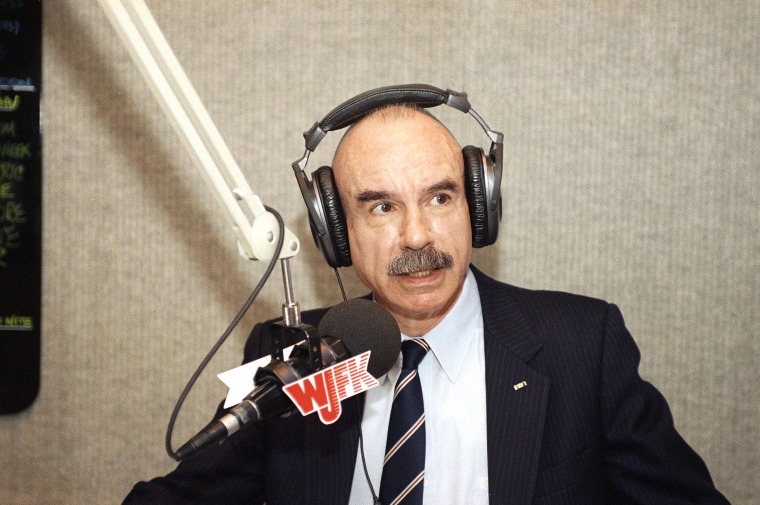G. Gordon Liddy, the political operative who supervised the Watergate burglary, which brought down President Richard Nixon, died Tuesday, his family said. He was 90.
Liddy's family said in a statement that he died Tuesday morning at his daughter's home in Mount Vernon, Virginia. It did not give a cause of death. His son, James, said that the cause was not related to Covid-19, and that he had been dealing with Parkinson's disease.
Liddy was one of the organizers of the 1972 break-in of the Democratic National Committee headquarters at the office building with the name that would forever be linked to one of the biggest political scandals in American history.
The five burglars were caught. Money and other links would lead from the burglars to others, including Liddy, a former FBI agent, and to the White House.
Nixon resigned in 1974 in the face of an almost-certain impeachment and conviction.
Liddy was convicted of conspiracy, burglary and wiretapping in 1973 and sentenced to 20 years in prison. Years later, he declared, "I'd do it again for my president."
President Jimmy Carter in 1977 commuted his sentence to eight years in what he said was the interest of fairness, which made Liddy eligible for parole that year.
Liddy remained unrepentant. In 1980, he published an autobiography, "Will," which was the basis for an NBC TV movie, and he also became a controversial talk radio figure as host of "The G. Gordon Liddy Show."

"I am proud of the fact that I am the guy who did not talk," Liddy once said.
Liddy and another man, E. Howard Hunt, kept in contact with the Watergate burglars via radio from a room in the adjacent Watergate hotel.
Twenty-five people went to prison as a result of the botched break-in, including Hunt. Hunt, a former CIA officer, died in 2007.
Nixon won re-election by a landslide in 1972, months after the break-in. But the scandal consumed his presidency, and in 1973, the Senate established a committee and televised hearings were held.
During the hearings, the existence of an automated taping system was revealed. The Supreme Court in 1974 ordered the White House to relinquish the tapes, which have been called a "smoking gun" of the cover-up.
Liddy, who refused to testify to the Senate committee, did not plead guilty in the criminal case and was convicted.
During his time in prison, Liddy spent more than 100 days in solitary confinement.
In 1971, the year before the Watergate break-in, Liddy was part of a clandestine White House group known as "the plumbers," whose job was to plug leaks in the Nixon administration.
The same year, Liddy was part of a break-in targeting the psychiatrist of Daniel Ellsberg, the analyst who leaked the Pentagon Papers, in an effort to discredit Ellsberg. Liddy was also convicted of conspiracy in that case.
In addition to his autobiography, Liddy wrote other books and was an actor who appeared in several shows, including "Miami Vice" in the 1980s.
He was born in Brooklyn, New York, in November 1930, served in the Army and graduated from Fordham University Law School before he joined the FBI.
In an interview with WHYY "Fresh Air" in 1980 after the publication of his autobiography, Liddy described unusual ways of overcoming fears as a child, including rats.
He went to the waterfront to confront the rats, but they would swim away. When his sister's cat killed a rat, he decided to eat it. "And so I cooked and consumed part of the rat. And thereafter, I had no fear of rats," Liddy said.
Liddy's wife, Frances Purcell Liddy, died in 2010. He is survived by a sister and five children, his family said.
Son Thomas Liddy said Tuesday night that his family was very grateful that Liddy had had a long and interesting life, including the chance to serve his country.

